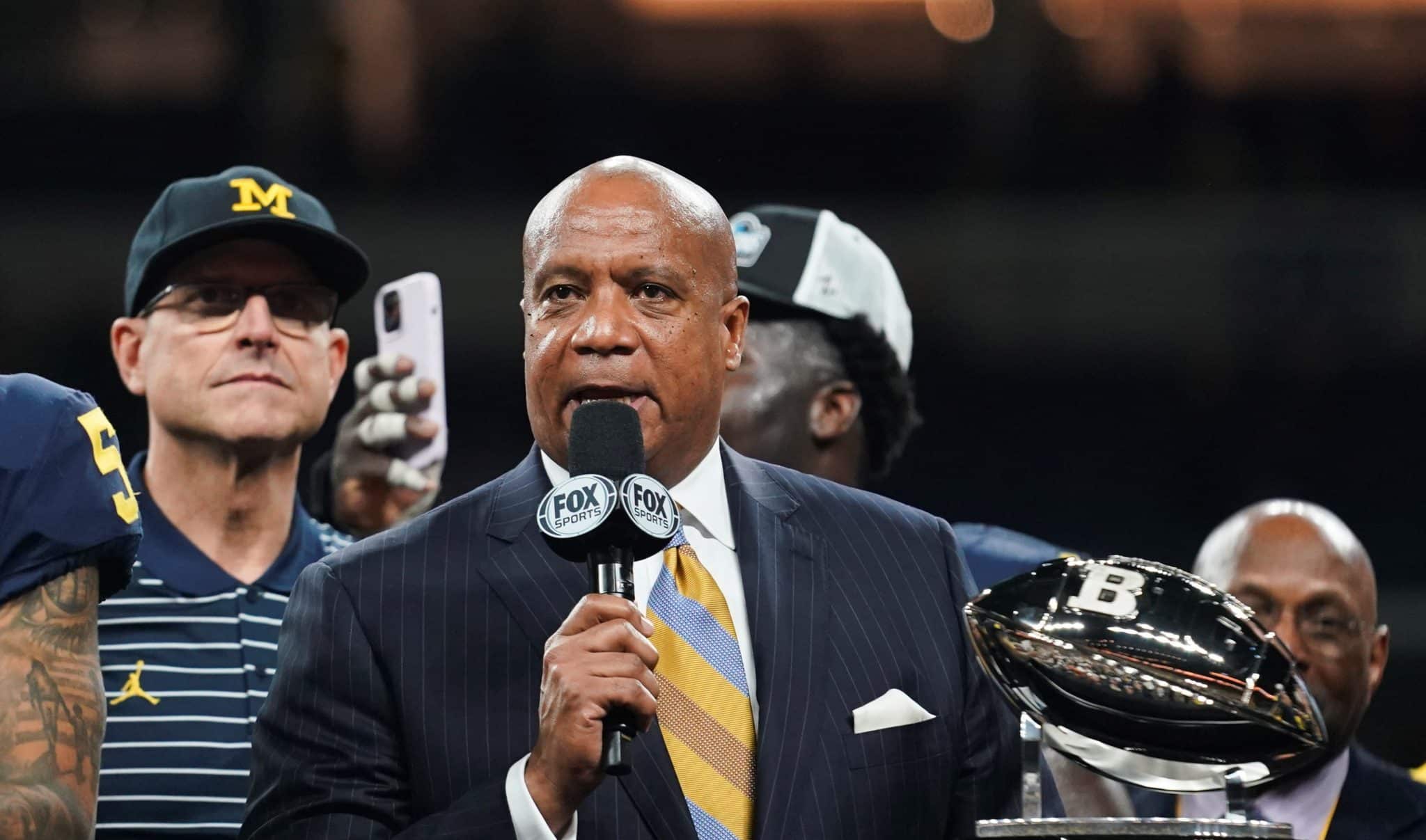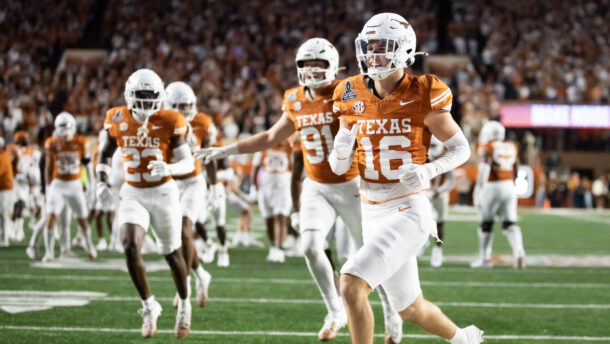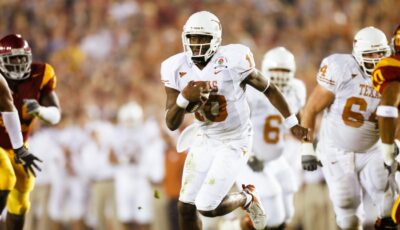
Kevin Warren changed the B1G forever. Where does it go next?
By Chris Wright
Published:
Kevin Warren will depart the Big Ten as the shortest-tenured commissioner in league history. In a position that no man has previously held for less than a decade, Warren is leaving for the NFL’s Chicago Bears after just 4 years.
But in that short time, Warren left an impact that’s likely to be felt forever. His decisions were among the most transformational in college sports history, though we have yet to even see that history unfold.
And like any impactful decisions, there’s good and bad in that equation.
The good isn’t up for debate. The Big Ten will be the most profitable college athletic conference in the country thanks to Warren’s handiwork.
Starting in 2024, the B1G begins a new media rights deal with FOX, CBS and NBC. It’s a coup that puts Big Ten games national TV in every time window from noon-night every football Saturday from 2024-2031. And those networks are paying a premium — $8 billion in total for 7 years’ worth of broadcast rights.
That averages out to $1.15 billion per year for the B1G. The SEC’s media rights deal, which lasts 3 years longer, brings in $710 million per year in comparison.
But that also brings us to the unpleasant side of Warren’s tenure.
It’s probable that no one has ever made a billion bucks without stabbing someone else in the back. Go re-watch The Social Network. It’s a pretty good template for billion-dollar behavior.
Warren responded to the SEC’s addition of Oklahoma and Texas by banding together an “Alliance” with the ACC and the Pac-12. These 3 conferences would somehow work in concert to mitigate the SEC’s power.
But somewhere along the line, Warren recognized he could just consolidate all that power within the B1G. He stabbed his Pac-12 partners in the back, bringing USC and UCLA into the Big Ten fold starting in 2024.
With that act, college sports as we know and appreciate it died. Warren, playing the role of Dr. Frankenstein, birthed something that will look and feel different than before.
The emphasis is no longer on regional rivalries or century-old traditions. Though it’s always been about the money to some extent, now it’s exclusively about the money. And the long-term effect that will have on college sports has yet to play itself out.
The SEC and B1G are standing pat at 16 schools a piece for the time being, but we’re entering a Cold War of brinksmanship. If either conference decides to proceed with further expansion, there will be mutually assured destruction throughout the rest of college athletics. Programs like Oregon State and Washington State, which would not be part of any B1G reach into the Pacific Northwest, balance in a precarious position.
This is what makes the selection of Warren’s replacement a critical moment in Big Ten and college sports history.
Replacing Kevin Warren is a landmark moment
Will Big Ten presidents seek someone who serves their business interests and looks to continue aggressively outflanking the SEC? Or will they find a leader who seeks to create a state of detente and looks out for the good of college sports as a whole?
There is a risk involved to either approach.
The Big Ten could assert its power further, but doing so could erode fan interest at dozens of schools across the country. And if fans realize they’re watching nothing more than a watered-down version of the NFL, they’ll choose the superior product.
But the B1G must also be cautious about selecting a candidate who is fully committed to stopping expansion. While it’s a good principle, they can’t be naive about it. Just as Warren betrayed the Pac-12, there’s little to stop SEC commissioner Greg Sankey from bringing the new Big Ten commissioner into his circle of trust and then going behind his or her back to raid the ACC’s top pickings.
It’s pretty clear Kevin Warren is going back to the place he belongs — the NFL. (He’ll remain the B1G’s commissioner through the NCAA Tournament, leaving for the Chicago Bears in mid-April.)
For better or worse, he aspired to make the Big Ten feel a bit more like the NFL. So much so that he was possibly surprised that not everyone shares that vision.
When he spoke at Big Ten Media Days last summer, Warren cast himself as a visionary. Traditionalists were just stuck in the past, supporting a product fated to go the way of Sears.
That attitude will fit in well with the Chicago Bears, who have woken up every year since 1986 hoping that it was 1985. The Bears need the jolt. Especially as they pursue a new stadium in the suburbs.
Maybe he’ll even talk the Packers into forming some kind of alliance that instead hastens their demise. Bears fans can only hope.
The Big Ten will be better off financially due to Warren’s impact. It’s up to his replacement to make sure the conference thrives in other ways.
Managing Editor
A 30-time APSE award-winning editor with previous stints at the Miami Herald, The Indianapolis Star and News & Observer, Executive Editor Chris Wright oversees editorial operations for Saturday Down South.







